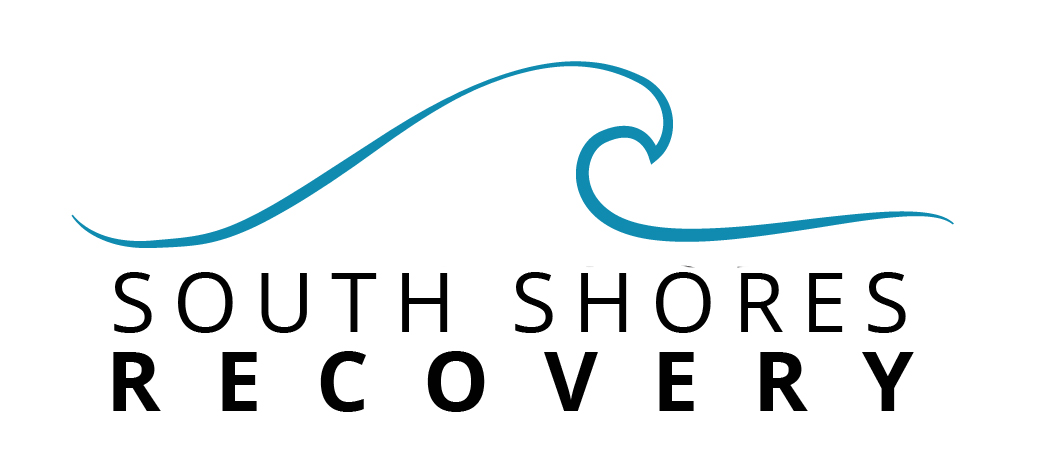My Story: Overcoming Alcohol Withdrawals and Getting Sober
I abused alcohol for so many years that I ended up being physically addicted. I needed to start drinking early in the morning to not feel the withdrawal symptoms of detoxing. Alcohol withdrawal syndrome is extremely uncomfortable and is one of the few forms of withdrawal that can be fatal. Yes, you can die if you quit drinking and don’t have any medical supervision.
When I arrived at South Shore Detox and Recovery, I had severe detox symptoms. Alcohol detox is no fun, but I’m so grateful I chose South Shores as a recovery center. They made every step of the process as easy as possible, even when it was extremely difficult. The detoxification process I endured was enough to make me never want another drink.
Keep on scrolling to learn more about my detox from booze and how I finally found a safe landing and successful bedrock for my recovery in Dana Point with the team at South Shores!
Drug and Alcohol Detox is a Necessity
When you seek treatment, you don’t go straight into rehab. Most addictions require a drug or alcohol detox. You need to cleanse your body somewhat and overcome all of the physical symptoms of alcohol withdrawal in order to focus on staying sober once you are done with detox. Whether you are going through a drug detox or an alcohol detox, it’s going to be a battle.
Withdrawal symptoms don’t discriminate. The longer you use certain drugs or alcohol, the worse your withdrawal symptoms will be. Some people experience severe symptoms that make them give up and go right back to their drug or alcohol habits.
I wanted to leave the entire time I was in detox, but with the right team around me, I stuck it out. To learn how you can endure the detox process, read more to see how I was able to do it.
The Story of My Alcohol Withdrawal Symptoms

Alcohol is a depressant, and it changes the way your brain and nervous system function. When you abruptly stop drinking, your body doesn’t know what to do with itself. With alcoholism, you get to a point where your body needs alcohol just to function properly. Certain substances can cause different withdrawal symptoms, but generally, the symptoms are similar no matter what your drug of choice is.
Ending up with alcohol withdrawal syndrome depends on your level of addiction. The withdrawal symptoms can last days or even multiple weeks. Common symptoms include body aches, disrupted sleep patterns, excessive sweating and/or chills, nausea, vomiting, and diarrhea. Severely dependent people often suffer from more intense withdrawal symptoms from alcohol such as migraine headaches and even hallucinations.
Withdrawal Symptoms of Detoxing: Avoiding Delirium Tremens
For those who have a severe alcohol addiction, delirium tremens, or “D.T.’s”, is very common. This can result in severe shaking, loss of control over bowel movements, seizures, brain fog, and hallucinations. D.T.’s can very often be fatal. Even with medical supervision, DTs can result in death. This is one of the most severe symptoms of detoxing of alcohol. Generally, people only experience delirium tremens following decades of alcohol abuse.
Thankfully, this was not my experience. Even though I drank for years on end, my withdrawal was more physical than anything. I was in detox for almost a week. I sat curled up in a ball for most of the time and just sweated it out.
This information is not meant to scare you necessarily, but sometimes it takes this kind of experience for you to realize how much you need help. When I got out of detox, I swore to myself that I would do my best to never experience that again.
Overcoming Detox Symptoms at South Shores
It takes a great group of people around you to help you through the process. I have tried to detox on my own once or twice, and never made it more than a day or two. It’s simply too difficult to overcome on your own. The people at South Shores had a great plan in place for me and encouraged me every step of the way. Sometimes all it takes is a little bit of encouragement during your darkest hours.
When I went through alcohol withdrawal, a lot of emotions came flooding in that I had been avoiding through my drinking. My mental health was never the best, and when I didn’t have booze to mask my issues, I had to face it all head-on.
When you are going through the detox process, you are going to feel a whirlwind of emotions. I couldn’t avoid thinking about all of the people I hurt, including myself.
The Cautious Joy of Mental Clarity

When I got out of detox and started the long-term recovery process from alcohol abuse, I had a good head on my shoulders for the first time in years. I had my mind back and was given the time and space to work on my issues with no interruption.
Recovery is just as much a mental process as it is a physical one. When you’re mentally healthy, you are at a great advantage to tackle some of the things that need tackling.
When the Pink Cloud Bursts
A lot of addicts talk about the pink cloud. Pink cloud syndrome refers to addicts who are newly sober and feel exhilarated at the prospect of being sober. In recovery, we refer to this as the ‘honeymoon phase’.
You have put away the worst of your habits and unhealthy foods. Your increased energy levels make you feel like you can take on the world. You feel like you’ve got it all figured out and you’ll never go back to using drugs or alcohol. This incredible feeling of mental and physical health can be dangerous.
It’s important to be cautious during this period because there will be times when you are tested. It’s during the first few months of being sober that you will face the biggest challenges. Once you have to readjust to regular life, sobriety can become more difficult.
This is why it is important to continue to work on your recovery, even long after you’ve been in rehab and the pink cloud is a distant memory.
How To Deal With Being Newly Sober
Sobriety is a challenge, whether you’ve been clean for a few weeks or many years. Even though the headaches, tremors, fatigue, and other withdrawal symptoms are gone, there is still a mental game of gymnastics that needs to be played out.
Even though I’ve been sober for several years, the urge still hits me occasionally. If I get frustrated or upset, I feel the urge.
If I am let down by someone or something, I feel the urge. The trick is to talk it out and not succumb to that urge. People do a lot of different things to deal with these urges. Going to regular meetings is a great way to keep yourself in check. Engaging in physical activity or hobbies is another way to combat the urges.
Replacing The High
Even though I am not getting drunk anymore, I still need to get that dopamine release from something. I took up biking when I got newly sober, and that gave me the rush that I was looking for. If you can find a healthy way to get that release, then you will be better set up for success in recovery. The most important lesson I learned in treatment is that it is okay to feel weak sometimes. We all experience it.
Nobody gets sober and then never has a bad day ever again. I’ve met people who have been sober for decades and have relapsed. The best piece of advice I can give to them is that they can get right back on the wagon.
It doesn’t have to be an ultimate failure. We all make mistakes. Recovery teaches you how to react positively to those mistakes.
Lasting Recovery from Alcohol Addiction

I view every day as a gift. I am grateful that I have made it this far. I try to remind myself regularly how lucky I am to be in this position. Some addicts can’t even get one day of sobriety. That is the power of addiction. Substance abuse will turn you into a different person, and completely alter your priorities.
I still remember those feelings I had when I was deep into my addiction. I remember the hopelessness. I remember feeling like there was no way I could get clean. The fact that I am clean now has made me realize that I can do anything or be anything.
If I felt those dreadful feelings and then overcame them, then I feel like anyone can do it. This is what I try to convey to others when I am in group therapy.
Talking Out the Challenges Faced in Recovery
I see other people struggling regularly. If you go to enough meetings, you can see the signs. Sometimes, I’m the one showing those signs. If I’m not trying to help pick somebody else up, I’m being picked up by another.
I’ve never experienced a more loving, supportive community than the recovery community. No judgment, no gossip. Just people trying to help one another.
Support groups are my lifeline, but I also do a lot of self-work on top of that. I am constantly trying to develop and push myself. The mind is an incredible thing and you never know what you are capable of.
You can try new things. You can learn a new skill. You can do anything you set your mind to. Recovery has taught me all of this and so much more.
Reach Out to South Shores for Your Detox Success Story
If you or someone you love has been avoiding detox out of fear of the withdrawal process, I share your pain. That was me too. But the difference I found whenn attending South Shores Recovery was huge. They did everything possible to keep me comfortable and ease my cravings and anxieties.
Navigating withdrawals doesn’t have to be traumatic. With the help of their medical professionals, I learned this firsthand. If you want a safe and supportive off-ramp from alcohol (or other toxic substances) I suggest you reach out to them and get help. The single call changed my whole world for the better, and I firmly believe it can be for you as well!


Recent Comments